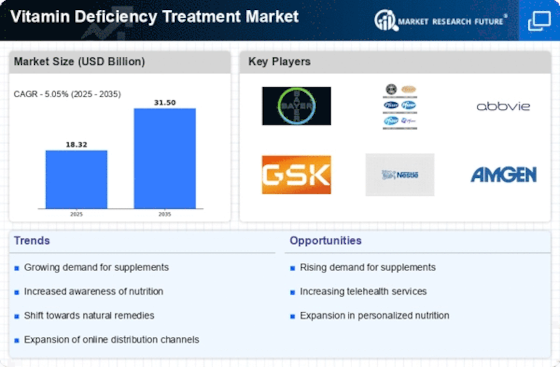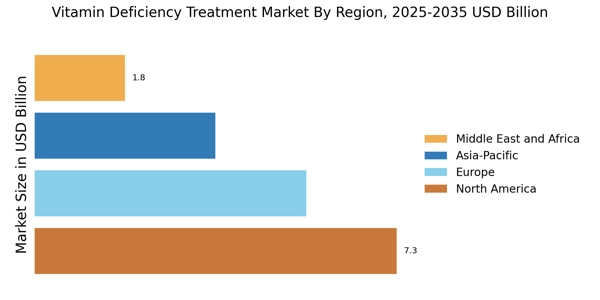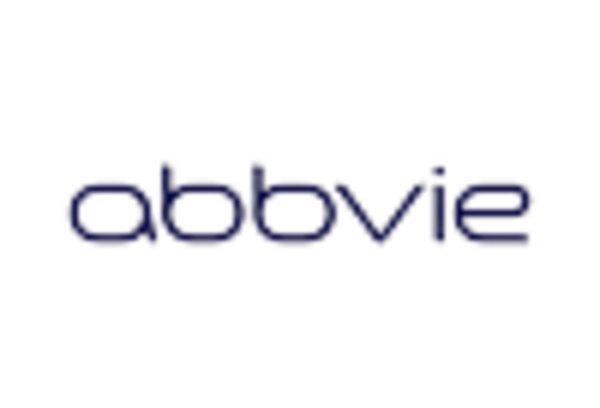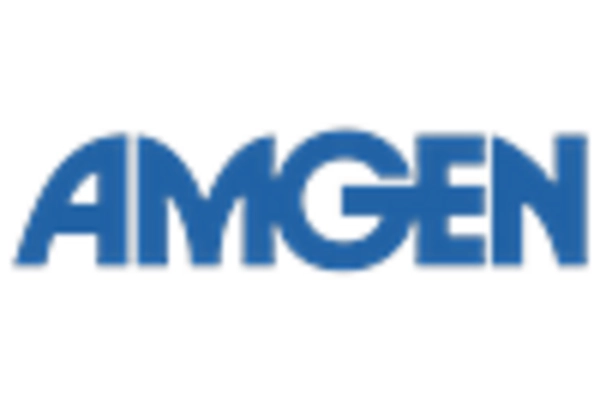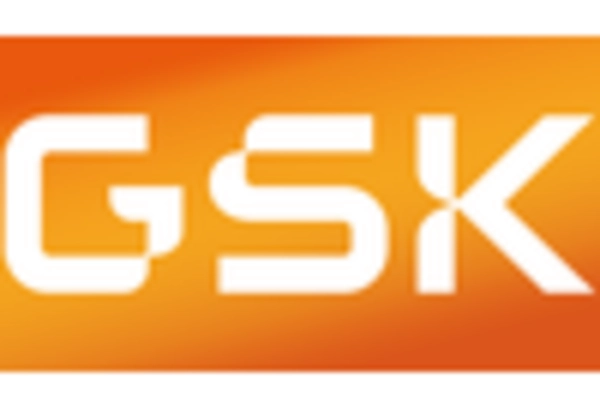Growing Health Consciousness
There is a notable increase in health consciousness among consumers, which seems to be significantly influencing the Vitamin Deficiency Treatment Market. As individuals become more aware of the importance of vitamins for overall health, they are actively seeking out treatments and supplements to address deficiencies. Market data indicates that the dietary supplement sector, which includes vitamin treatments, is projected to reach substantial revenue figures in the coming years. This heightened focus on health and wellness is likely to drive innovation and product development within the industry, catering to the evolving needs of consumers.
Rising Healthcare Expenditures
The upward trajectory of healthcare expenditures is likely to bolster the Vitamin Deficiency Treatment Market. As healthcare systems evolve and more resources are allocated to preventive care, there is an increasing focus on addressing vitamin deficiencies as part of overall health management. Reports indicate that countries are investing more in nutritional programs and public health initiatives aimed at reducing deficiency rates. This investment is expected to create a favorable environment for the development and distribution of vitamin treatments, thereby enhancing market growth.
Expansion of E-commerce Platforms
The proliferation of e-commerce platforms appears to be reshaping the Vitamin Deficiency Treatment Market. With the convenience of online shopping, consumers are increasingly turning to digital channels to purchase vitamin supplements and treatments. Data suggests that online sales of dietary supplements have seen a significant uptick, with many consumers preferring the ease of home delivery and the ability to compare products. This trend is likely to continue, as e-commerce provides a broader reach for manufacturers and retailers, facilitating access to a wider audience and potentially increasing market share.
Regulatory Support for Nutritional Products
Regulatory frameworks that support the development and marketing of nutritional products appear to be a significant driver for the Vitamin Deficiency Treatment Market. Governments are increasingly recognizing the importance of addressing vitamin deficiencies and are implementing policies that encourage the production and sale of dietary supplements. This regulatory support may include streamlined approval processes for new products and initiatives aimed at educating the public about the benefits of vitamin supplementation. Such measures are likely to foster innovation and competition within the market, ultimately benefiting consumers.
Increasing Prevalence of Vitamin Deficiencies
The rising incidence of vitamin deficiencies across various demographics appears to be a primary driver for the Vitamin Deficiency Treatment Market. Reports indicate that deficiencies in vitamins such as D, B12, and A are becoming more common, particularly among older adults and individuals with restrictive diets. For instance, studies suggest that approximately 40% of adults may be vitamin D deficient, which has prompted a surge in demand for supplements and treatments. This trend is likely to continue as awareness of the health implications of vitamin deficiencies grows, thereby expanding the market for treatment options.


